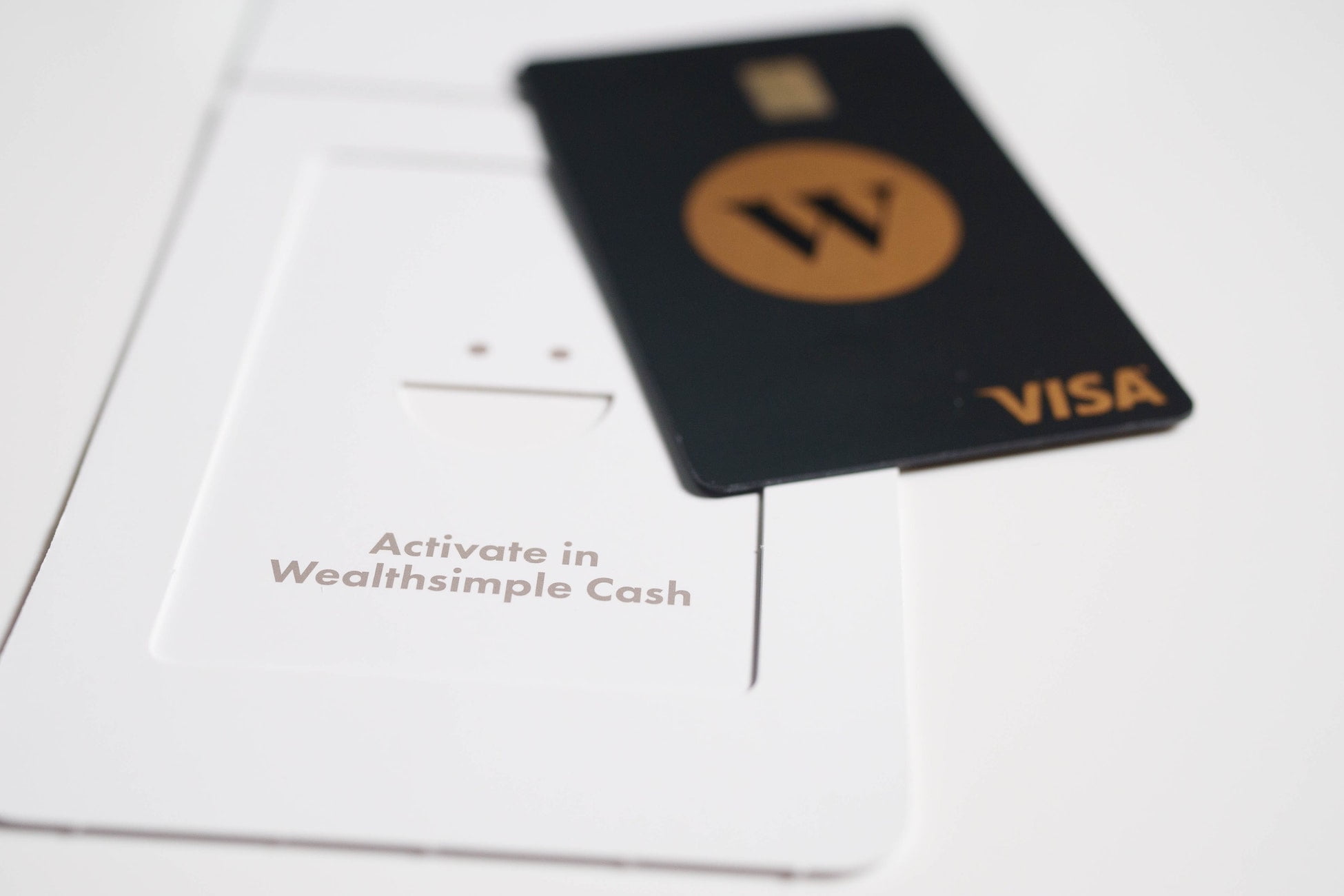Picture this: you're scrolling through social media on a lazy Sunday afternoon, sipping your favorite artisanal iced coffee, when suddenly you realize that figuring out the world of credit cards and personal loans is just as confusing as deciphering the latest TikTok trend. Welcome to "Credit Cards Vs Personal Loans: Personal Finance Guide" – your no-fluff, jargon-free roadmap designed for savvy millennials and Gen Zers who want to make smarter money moves without sacrificing a bit of fun along the way.
Credit Cards Vs Personal Loans: Personal Finance Guide Table of Contents
Understanding the Basics: Credit Cards and Personal Loans 101
The Ins and Outs of Credit Cards: Convenience, Perks, and Pitfalls
Diving Deep into Personal Loans: Fixed Terms, Predictable Payments
Key Differences: Credit Cards vs. Personal Loans
Which One Is Right for You? Deciding Based on Your Lifestyle and Goals
Making Smarter Money Moves: Tips for Managing Credit Cards and Personal Loans
Comparative Analysis: When Credit Cards Beat Personal Loans – and Vice Versa
Troubleshooting Common Pitfalls in Personal Finance
How Technology and Apps Can Help You Manage Debt Like a Pro
Real-Life Scenarios: How Millennials and Gen Z Are Navigating Credit Cards and Personal Loans
Deep Dive: Interest Rates, APR, and Other Financial Lingo Demystified
Financial Freedom Is a Journey: Building Habits That Stand the Test of Time
Resources and Community Support: Your Next Steps
FAQ: Your Burning Questions About Credit Cards and Personal Loans Answered
Understanding the Basics: Credit Cards and Personal Loans 101
If personal finance were a smartphone, credit cards and personal loans would be the two must-have apps that somehow always spark debate. At their core, both tools help you access funds, but they work in entirely different ways and serve unique purposes.
A credit card is essentially a revolving line of credit. Think of it as a financial boomerang: you borrow money, pay it back (preferably with interest if you carry a balance), and then borrow again. It’s perfect for everyday purchases, emergencies, or, yes, that spontaneous online shopping spree.
In contrast, a personal loan is a lump sum you borrow from a bank or credit union which you repay in fixed monthly installments over a predetermined period. It’s the go-to option when you have one big expense – like funding a wedding, consolidating debt, or even jumpstarting that entrepreneurial side hustle.
Both options have their pros and cons, and your ideal choice depends on your spending habits, credit score, and the specific financial goal you’re aiming to achieve.
The Ins and Outs of Credit Cards: Convenience, Perks, and Pitfalls
Credit cards are the life of the financial party – flashy rewards, instant spending power, and occasional bonus offers that make you feel like you've just unlocked a secret level of adulting. However, as with every fun party, there can be some hangover-worthy consequences if you're not careful.
Advantages of Credit Cards
1. Instant Flexibility: With credit cards, your spending power is always at your fingertips. Whether it's an unplanned dinner with friends or an emergency home repair, your card gives you the option to pay now and worry about repayment later.
2. Building Your Credit Score: Used responsibly, credit cards can be powerful tools to boost your credit history. Making timely payments and keeping your credit utilization low (ideally under 30%) shows lenders that you're trustworthy with borrowed money.
3. Reward Programs: Many cards offer cashback, points, or travel rewards that feel like mini windfalls. Who doesn’t love the idea of earning free flights, hotel stays, or gift cards for simply buying groceries or streaming the latest binge-worthy series?
4. Fraud Protection and Perks: Most credit cards come with robust security features, fraud alerts, and sometimes even travel insurance perks. So if your card details end up in the wrong hands, you’re generally covered.
Disadvantages of Credit Cards
1. High Interest Rates: If you’re one who loves to carry a balance, beware – high APRs (annual percentage rates) can quickly turn your spending into a money pit.
2. Temptation to Overspend: With a credit card in your wallet, the “buy now, pay later” magic can sometimes lead to impulsive purchases that may result in a debt spiral.
3. Hidden Fees: Late fees, over-the-limit fees, and annual fees can catch you off guard if you’re not meticulously reading the fine print. It pays to be vigilant and know what you’re signing up for!
4. Impact on Credit Score: A high balance relative to your credit limit or too many credit inquiries can ding your score, making future loans or credit requests more expensive or even unattainable.
Diving Deep into Personal Loans: Fixed Terms, Predictable Payments
Imagine setting off on a road trip with a clear route and a set schedule; that’s what a personal loan feels like in the realm of finance. You get a fixed amount, a fixed repayment period, and the relief of knowing exactly when your loan will be paid off.
Benefits of Personal Loans
1. Predictability: With a personal loan, you know your monthly payment from the outset. This fixed repayment plan can simplify budgeting and help you plan your finances with confidence.
2. Lower Interest Rates for Some Uses: If you're consolidating debt or planning a major purchase, personal loans often come with lower interest rates compared to carrying a credit card balance. It’s like trading in your sports car for an efficient eco-friendly ride when you need to go the distance.
3. No Temptation to Overspend: Since you receive a lump sum rather than a revolving credit line, there’s less temptation to dip into additional funds beyond your actual needs.
4. Simplified Debt Consolidation: Personal loans can help streamline multiple credit card balances into one manageable monthly payment. This consolidation can make your financial life much less chaotic.
Drawbacks of Personal Loans
1. Strict Approval Requirements: Personal loans usually have more stringent approval processes. If your credit history isn’t picture-perfect, you might face higher interest rates or even a rejection.
2. Fixed Repayment Schedule: While predictability is a plus, it also means less flexibility if your financial situation changes. Missing a payment can seriously affect your score and incur additional fees.
3. Limited Use: Unlike credit cards that can be used for virtually any purchase, personal loans are typically earmarked for specific expenses. This might limit your flexibility if you encounter an unexpected cost that doesn’t fall under the approved categories.
4. Prepayment Penalties: Some loans include penalties for early repayment. While paying off debt early is great news for your wallet, the fine print might have you paying a fee to do so.
Key Differences: Credit Cards vs. Personal Loans
Now that you have a solid grasp on the basics, it’s time to break down the key differences between credit cards and personal loans. Choosing between the two is less about "good" or "bad" and more about what aligns with your financial needs, spending habits, and long-term goals.
Repayment Structure
Credit cards offer revolving credit, meaning you can continually borrow and pay back as long as you stay under your limit. This makes them ideal for ongoing expenses but can be dangerous if you’re not careful with your balance. Personal loans, on the other hand, are installment-based loans with fixed monthly payments. This scheduled repayment plan can help keep your finances predictable, much like a well-crafted playlist that never misses a beat.
Interest Rates Explained
Credit cards can have variable interest rates that may be high if you carry a balance. Those APRs can feel like they’re on a roller coaster ride—thrilling until you realize you’re paying for the thrill every month. With personal loans, interest rates are typically fixed, providing a sense of financial stability and making it easier to plan your future payments—kind of like having a guaranteed Netflix subscription without the surprise price hikes.
Fees and Hidden Costs
Both credit cards and personal loans come with their own set of fees. Credit cards may involve annual fees, late payment charges, and over-limit fees if you're not careful. Personal loans can include origination fees, processing fees, and occasionally prepayment penalties. The takeaway here? Always read the fine print and be prepared for any sneaky charges that might come your way.
Credit Score Impact
Both credit cards and personal loans affect your credit score, but the way they do it is different. Responsible use of a credit card (like paying in full and on time) can boost your credit score by demonstrating financial discipline. However, maxing out your credit card can have the opposite effect. Personal loans, with their fixed payment plans and lump-sum disbursement, can also boost your credit score as long as you make your payments consistently. It all comes down to how you manage your credit – think of it as a long-term video game where you’re leveling up your financial status.
Flexibility vs. Control
When it comes to choosing between the two, your personal spending style plays a huge role. Credit cards offer ultimate flexibility for day-to-day purchases and emergencies, giving you a financial safety net that’s always ready to jump into action. Personal loans provide more control over your finances by locking in a repayment schedule, which can help prevent overspending but might also feel restrictive if your income fluctuates.
Which One Is Right for You? Deciding Based on Your Lifestyle and Goals
The ultimate decision between a credit card and a personal loan hinges on your unique circumstances. Ask yourself: What is my primary financial goal right now? Are you managing ongoing expenses, or do you need a one-time cash infusion to tackle a major purchase? If you’re someone who thrives on spontaneity and can pay off your balances in full each month, a credit card might be your best friend. However, if you need a structured plan with fixed payments to consolidate debt or finance a large expense, a personal loan could be the wise choice.
Consider your spending habits, your ability to manage debt, and your current credit score. For instance, if you’re a careful planner who values consistency and predictability, the fixed nature of a personal loan might bring peace of mind. Conversely, if you appreciate rewards and the convenience of a revolving credit line, then a credit card—used judiciously—could offer you both financial support and extra perks.
Remember, there’s no one-size-fits-all answer. Your decision might even change over time as your financial situation evolves. The key is to regularly review your finances and adjust your strategy based on your current goals and spending behavior.
Making Smarter Money Moves: Tips for Managing Credit Cards and Personal Loans
Regardless of the tool you choose, smart management is essential to keep your personal finances on track. Here are some tips to help you make the most of your credit cards and personal loans without falling into common traps.
Best Practices for Credit Cards
1. Always Pay More Than the Minimum: Paying only the minimum can lead to a never-ending cycle of debt due to high interest rates. If possible, pay your balance in full each month to avoid interest charges and keep your credit score healthy.
2. Keep an Eye on Your Credit Utilization Ratio: Aim to stay under 30% of your total available credit. This ratio is a key factor in determining your credit score, and maintaining a low ratio demonstrates responsible credit management.
3. Take Advantage of Rewards: Use your credit card benefits strategically. Whether it’s cashback, travel points, or exclusive discounts, make sure you’re getting the maximum value out of your purchases.
4. Set Up Alerts: Most banks offer tools to track your spending and send reminders for due dates. Use these features to avoid late fees and potential credit score damage.
Strategies for Managing Personal Loans
1. Create a Detailed Budget: Since personal loans have fixed payments, integrate these into your monthly budget. Knowing where every dollar goes can help prevent overspending and ensure you meet your repayment obligations.
2. Consider Automatic Payments: Automating your payments can help you avoid missed deadlines and the associated penalties or extra fees.
3. Monitor Your Finances Regularly: Use budgeting apps or spreadsheets to keep tabs on your loan payments, remaining balance, and interest accrued. Keeping a close eye on your financial progress will motivate you to pay off your debt faster.
4. Don’t Be Afraid to Refinance: If your credit improves or interest rates drop, refinancing your personal loan could lower your monthly payments or shorten your loan term, saving you money in the long run.
Comparative Analysis: When Credit Cards Beat Personal Loans – and Vice Versa
Let’s cut to the chase: sometimes, one simply outshines the other, depending on your situation. Here’s a quick rundown to help you decide when to lean towards a credit card or when a personal loan might be the better ally in your financial journey.
Choose a Credit Card When:
- You have recurring expenses and need ongoing access to funds.
- You’re confident in alternating between paying off the balance in full and managing occasional small balances.
- You want to earn rewards on everyday purchases.
- You have a variable income and need the flexibility of revolving credit.
Opt for a Personal Loan When:
- You need a one-time lump sum for a major expense, like home renovations or a wedding.
- You’re consolidating multiple high-interest debts into a single, manageable payment.
- You prefer a fixed repayment plan that can simplify your monthly budget.
- Your spending habits require a bit of discipline—once the money is in your account, there’s no temptation to keep borrowing.
Evaluating your situation against these checklists can clarify which financial instrument is best suited for your current needs. Remember, personal finance is not about following one guru’s advice—it’s about understanding your unique financial story and taking control of your future.
Troubleshooting Common Pitfalls in Personal Finance
Even the most well-planned finances can hit a snag. Whether it’s an unexpected expense or an unpredictable market shift, staying nimble is key. Here are some common pitfalls and how to avoid them:
Over-Reliance on Credit Cards
It’s easy to get caught up in the freedom of a credit line that makes you feel like a high roller. The remedy? Consistently monitor your monthly statements, set spending limits, and never let impulse purchases pile up into an unmanageable balance.
Ignoring the Fine Print
Every credit card and personal loan agreement is peppered with small text that details fees, penalties, and terms. Take the time to read and understand these details – future you will thank you!
Failing to Establish an Emergency Fund
Relying solely on credit during emergencies can plunge you into deep debt. Build an emergency fund to cover unexpected situations. This fund acts as your financial first-aid kit when things go sideways.
Not Reassessing Your Financial Strategy
Life is fluid, and so should be your personal finance strategies. Regularly review your budget, track your credit score, and adjust your approach to borrowing — whether it’s switching credit cards for better rewards or refinancing a personal loan for a lower rate.
In short, stay informed, be proactive, and remember: the journey to financial wisdom is a marathon, not a sprint.
How Technology and Apps Can Help You Manage Debt Like a Pro
In the digital age, there’s an app for just about everything—and personal finance management is no exception. Whether you’re tracking your spending, setting up automated payments, or analyzing your credit score trends, there are countless tech tools designed to help you stay on top of your finances.
Consider using budgeting apps like Mint, YNAB (You Need A Budget), or even your bank’s own mobile app to monitor your transactions. Many of these platforms offer alerts, spending summaries, and even insights into how you can optimize your credit utilization. Leveraging technology not only simplifies debt management but also empowers you with the data to make informed choices, ensuring that you’re always one step ahead in your financial game.
Real-Life Scenarios: How Millennials and Gen Z Are Navigating Credit Cards and Personal Loans
Let’s talk real life – the kind of situations that your Instagram stories and late-night coffee chats are all about! Imagine Ava, a creative freelancer with fluctuating income. Her secret weapon? A credit card with a generous rewards program that lets her earn points on every project expense, balanced by a strategic plan to pay off her balance before interest accrues. For Ava, the flexibility of a credit card is her ticket to meeting life’s unpredictable turns with confidence.
Then there’s Marcus, a young professional in the bustling tech scene. Marcus recently consolidated his student loans and credit card debt with a personal loan that offers a lower interest rate and fixed monthly payments. This allowed him to streamline his finances while focusing on saving for that shared apartment downtown. Marcus’s story emphasizes the power of having a structured plan, proving that a personal loan can truly be the financial equivalent of hitting the “organize” button on your budget.
And of course, we can’t forget Zoe, who believes in balancing spontaneity with responsibility. Zoe uses her credit card for everyday purchases to earn rewards, but she also has a personal loan to cover a big-ticket expense like a once-in-a-lifetime travel adventure. By splitting her financial tools wisely, Zoe is modernizing the old-school “savings versus spend” debate into a conversation about maximizing every opportunity life throws her way.
Deep Dive: Interest Rates, APR, and Other Financial Lingo Demystified
If you’ve ever felt like the world of credit cards and personal loans speaks another language, you’re not alone. Terms like APR, credit utilization, and debt-to-income ratio might sound like secret codes at first, but with a little guidance, you’ll be fluent in finance in no time.
APR (Annual Percentage Rate): This is the yearly interest charged on your borrowed funds. Credit cards often have variable APRs, which can change based on market conditions and your creditworthiness, while personal loans typically offer a fixed APR, making your monthly budgeting a bit easier.
Credit Utilization: This is the ratio between your current credit card balance and your credit limit. Keeping this ratio low is crucial for your credit score. Think of it as maintaining a healthy balance on a seesaw – too much weight on one end, and things might just tip over.
Debt-to-Income Ratio: Lenders use this ratio to assess your ability to manage monthly payments and repay debts. It’s calculated by dividing your monthly debt payments by your gross monthly income. A lower ratio is generally more favorable, signaling that you’re not overwhelmed by debt.
By familiarizing yourself with these terms, you not only boost your financial literacy but also gain the confidence to negotiate with lenders and make savvy money moves.
Financial Freedom Is a Journey: Building Habits That Stand the Test of Time
At the end of the day, choosing between credit cards and personal loans is only one chapter in your broader financial story. The real magic happens when you build habits that support long-term financial freedom. This means regularly reviewing your credit reports, setting clear financial goals, and keeping an eye out for opportunities to save or invest.
Whether it’s using automatic reminders to stay on top of your credit card payments or adjusting your budget after a big purchase financed by a personal loan, consistency is key. With each smart decision, you’re not just paying bills—you’re building a legacy of financial empowerment that will serve you for years to come.
Resources and Community Support: Your Next Steps
Feeling daunted by all this financial jargon and decision-making? Don’t sweat it—there’s a whole community out there ready to support you. Join online forums, subscribe to personal finance blogs, or hook up with local community groups that focus on credit education and money management. Many platforms offer free webinars, budgeting tools, and expert advice that can help you navigate the sometimes-turbulent waters of personal finance with confidence and a dash of humor.
Also, consider consulting with a financial advisor who understands the unique challenges faced by millennials and Gen Z. These professionals can help tailor your financial strategy to match your lifestyle, ensuring that whether you choose a credit card or a personal loan, you’re making the smartest decision possible.
Remember, every great journey begins with a single step. Take advantage of the free resources available online, join a community of like-minded individuals, and never stop learning. Your future self will thank you for the money moves you’re making today.
FAQ: Your Burning Questions About Credit Cards and Personal Loans Answered
Navigating the world of credit cards and personal loans can be challenging, so we’ve compiled some of the most common questions and their answers to help clear up the confusion.
1. What is the main difference between a credit card and a personal loan?
A credit card provides revolving credit that you can use for everyday expenses, while a personal loan gives you a lump sum that you repay in fixed monthly installments over a set period.
2. How do interest rates differ between credit cards and personal loans?
Credit cards typically have variable interest rates that can be higher if you carry a balance, whereas personal loans usually offer fixed interest rates that give you predictable monthly payments.
3. Can both credit cards and personal loans help improve my credit score?
Yes, using either responsibly can boost your credit score. Credit cards help by demonstrating consistent, on-time payments and keeping your credit utilization low, while personal loans add a diverse mix of credit if managed well.
4. What fees should I be aware of when using these financial tools?
Credit cards may include annual fees, late payment fees, and over-limit fees, whereas personal loans can involve origination fees, processing fees, and sometimes prepayment penalties. Always read the fine print!
5. How do I decide which option is best for my financial situation?
Consider your spending habits, financial goals, and how predictable your income is. If you need flexibility for everyday purchases, a credit card might be ideal. If you have a big, one-time expense or want to consolidate debt with a fixed repayment plan, a personal loan could be the way to go.
6. Is it possible to use both a credit card and a personal loan to manage my finances?
Absolutely! Many savvy individuals use credit cards for daily transactions and emergencies while relying on personal loans for major expenses or debt consolidation. The key is to keep track of your spending and repayment strategies.
7. What strategies can help me avoid falling into debt traps?
Create a detailed budget, automate your payments, avoid unnecessary fees, and build an emergency fund. Staying disciplined about spending and continuously educating yourself about personal finance will help keep debt under control.
8. How often should I review my financial strategy?
It’s a good idea to review your strategy at least once a year or whenever you experience a significant life event, such as a career change, relocation, or major purchase.
Your Journey to Financial Empowerment
Taking control of your personal finances is more than just choosing between a credit card and a personal loan—it's about cultivating habits, making informed decisions, and continuously learning about what works best for you. Let this guide be a stepping stone on your path to financial empowerment. With a little planning, vigilance, and some of the best money management tools at your fingertips, you'll be well-equipped to ride out life’s ups and downs without breaking a sweat.
Embrace the journey with confidence, knowing that every smart decision you make today builds a more secure and prosperous tomorrow. Whether you’re earning rewards with a credit card or enjoying the predictable structure of a personal loan, each choice is a building block towards a future where money is a tool for freedom, not a source of stress.
So next time you’re faced with the classic debate of credit cards versus personal loans, remember – it’s not about choosing the “best” option universally, but finding the best option for your unique financial lifestyle. Here’s to smart decisions, savvy spending, and a future where your financial choices truly empower you!













